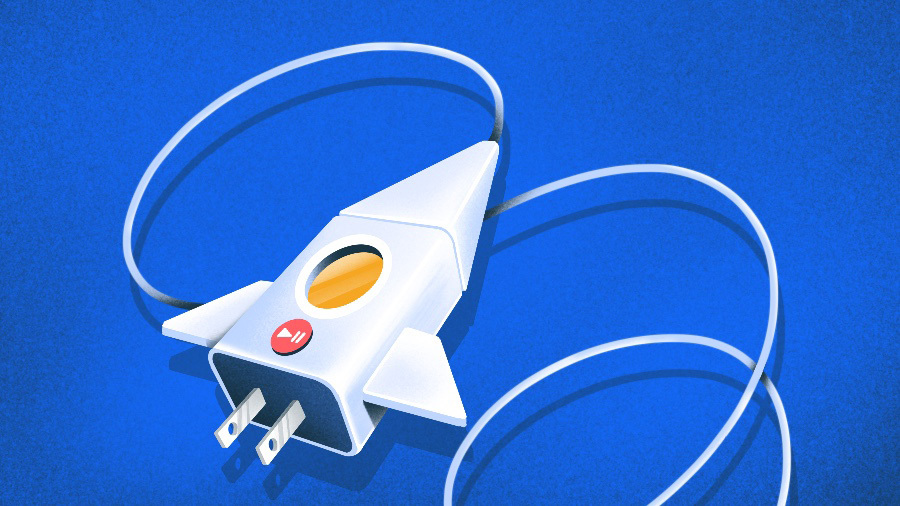It’s once again “game on” for gaming startups.
After several slow quarters, funding to companies in the gaming space has picked up a bit this year, driven by a resurgence in early-stage dealmaking and optimism around the ability of small studios to churn out hits.
In the first quarter of this year, investors put $265 million globally into early-stage rounds for gaming startups, per Crunchbase data. That’s a 65% gain from Q4 2023, and a roughly fourfold increase from Q3, during which investment hit a multiyear low.
For perspective, we charted out quarterly gaming-related early-stage investment for the past several quarters below.
Josh Chapman, managing partner at gaming-focused startup investor Konvoy Ventures, isn’t surprised to see the numbers tick higher.
“I think the industry has bottomed out from a funding perspective, and we’re now coming back to a pre-COVID norm,” he told Crunchbase News.
Chapman observed that unlike other sectors that saw a pandemic-inspired boost and subsequent slowdown, like takeout or connected fitness, gaming’s popularity hasn’t receded.
Certainly revenue is trending higher. Global video game industry revenue hit a record of over $400 billion in 2023, per Statistica, and is forecast to exceed $450 billion this year. The worldwide population of mobile gamers, meanwhile, is estimated at nearly 2 billion people.
Dry powder for startup investment also got a boost last week as venture heavyweight Andreessen Horowitz announced that it raised $600 million for a gaming-focused fund. The fund was part of a $7.2 billion total fundraise across multiple new investment vehicles.
Who’s getting funded
To some degree, we’re also seeing a return of big rounds. So far this year, investors have backed two nine-figure rounds for gaming startups, per Crunchbase.
The largest went to Edinburgh-based Build A Rocket Boy, which raised more than $110 million in Series D funding in January. The company is working on an immersive gaming platform, a high-end game series, and a set of design tools for user-generated content.
Also in January, Irvine, California-headquartered Second Dinner Studios closed on $100 million in Series B funding led by Griffin Gaming Partners. The game development studio is behind the popular game Marvel Snap, which has been downloaded more than 22 million times since its launch in 2022.
Chapman believes we’re in a bullish period for independent game developers, who have proven of late they’re capable of competing with the big names. In 2024, per Konvoy, five of the 10 highest-grossing titles on gaming hub Steam (Palword, Granblue, Last Epoch, Lethal Company and Enshrouded) were created by indie studios.
Large-scale layoffs and spending cuts carried out by big gaming brands in recent quarters have put some much-anticipated releases behind schedule, which has also helped redirect attention to titles from smaller studios, per Chapman. Indies are also benefiting from easier-to-use developer tools, which puts a premium on creative talent over technical proficiency.
So when are the exits coming?
It’s not the worst environment for exits either. While the tech IPO market remains rather quiet, Reddit’s well-received debut last month shows there is investor appetite for well-known names and consumer-facing properties.
For the gaming industry, it helps that there’s currently a good-sized list of companies with the reach and brand recognition to launch potentially successful IPOs.
Of these, the most hotly anticipated is Fortnite creator Epic Games, which has remained private since its inception in 1991. While the company is in no need of cash, having picked up $1.5 billion from Disney in February, it certainly checks all the boxes for a massive IPO should it decide to take that route.
Valve, another big gaming name founded in the 1990s, also features on the shortlist. Somewhat newer companies on the list include Discord, founded in 2015, and Niantic, founded in 2010.
We could also see some big startup acquisitions. Clearly public companies are getting snapped up for enormous sums, as evidenced by Microsoft’s $69 billion purchase of Activision Blizzard. Cash-rich tech and media giants with gaming divisions could also easily direct some of their reserves to private companies. Big gaming brands could do the same.
Still a long way down from the peak
While there’s room for optimism around a modest uptick in gaming-related startup funding, we’re still far, far below peak.
In 2021, a record period for global venture investment, over $1.9 billion went to early-stage gaming deals in the last three months of the year alone. Investment would have to increase more than sixfold from current quarterly funding levels to get back there.
Expectations among investors, however, have changed. In the current climate, sequential growth in deal count and total funding is encouragement enough for investors, though a few big exits couldn’t hurt.
Related Crunchbase Pro list:
Illustration: Dom Guzman

 8 months ago
52
8 months ago
52